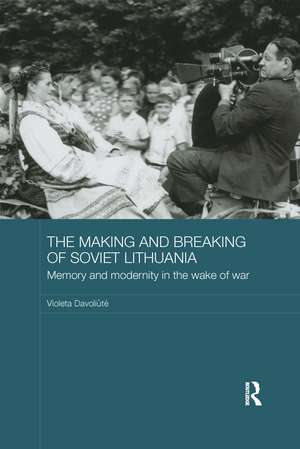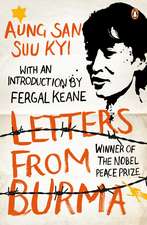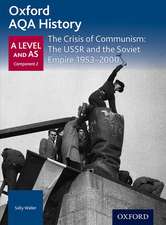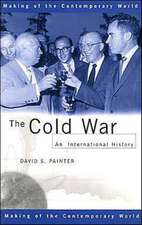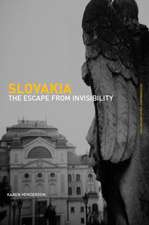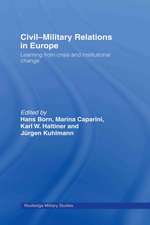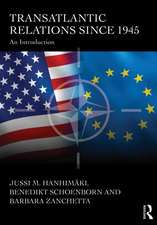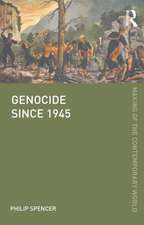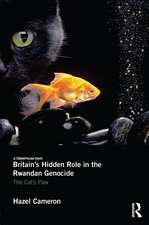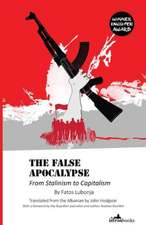The Making and Breaking of Soviet Lithuania: Memory and Modernity in the Wake of War: BASEES/Routledge Series on Russian and East European Studies
Autor Violeta Davoliūtėen Limba Engleză Paperback – 20 iul 2016
| Toate formatele și edițiile | Preț | Express |
|---|---|---|
| Paperback (1) | 416.22 lei 6-8 săpt. | |
| Taylor & Francis – 20 iul 2016 | 416.22 lei 6-8 săpt. | |
| Hardback (1) | 1059.48 lei 6-8 săpt. | |
| Taylor & Francis – 11 dec 2013 | 1059.48 lei 6-8 săpt. |
Din seria BASEES/Routledge Series on Russian and East European Studies
-
 Preț: 228.19 lei
Preț: 228.19 lei -
 Preț: 311.22 lei
Preț: 311.22 lei - 8%
 Preț: 389.69 lei
Preț: 389.69 lei -
 Preț: 737.43 lei
Preț: 737.43 lei -
 Preț: 309.89 lei
Preț: 309.89 lei -
 Preț: 310.22 lei
Preț: 310.22 lei -
 Preț: 297.39 lei
Preț: 297.39 lei -
 Preț: 326.49 lei
Preț: 326.49 lei -
 Preț: 349.09 lei
Preț: 349.09 lei - 9%
 Preț: 1038.51 lei
Preț: 1038.51 lei - 24%
 Preț: 298.10 lei
Preț: 298.10 lei -
 Preț: 398.18 lei
Preț: 398.18 lei - 18%
 Preț: 1271.75 lei
Preț: 1271.75 lei - 18%
 Preț: 1057.05 lei
Preț: 1057.05 lei - 18%
 Preț: 1059.84 lei
Preț: 1059.84 lei - 18%
 Preț: 1062.26 lei
Preț: 1062.26 lei - 18%
 Preț: 1055.51 lei
Preț: 1055.51 lei - 18%
 Preț: 1057.75 lei
Preț: 1057.75 lei - 18%
 Preț: 1059.84 lei
Preț: 1059.84 lei - 25%
 Preț: 823.63 lei
Preț: 823.63 lei -
 Preț: 487.75 lei
Preț: 487.75 lei - 18%
 Preț: 1005.39 lei
Preț: 1005.39 lei - 18%
 Preț: 1000.76 lei
Preț: 1000.76 lei - 8%
 Preț: 382.79 lei
Preț: 382.79 lei - 18%
 Preț: 1059.84 lei
Preț: 1059.84 lei - 18%
 Preț: 1059.84 lei
Preț: 1059.84 lei - 18%
 Preț: 1009.21 lei
Preț: 1009.21 lei - 18%
 Preț: 1059.84 lei
Preț: 1059.84 lei - 18%
 Preț: 1167.36 lei
Preț: 1167.36 lei - 18%
 Preț: 1060.87 lei
Preț: 1060.87 lei - 30%
 Preț: 771.71 lei
Preț: 771.71 lei - 18%
 Preț: 1059.84 lei
Preț: 1059.84 lei - 18%
 Preț: 1004.20 lei
Preț: 1004.20 lei - 18%
 Preț: 1053.92 lei
Preț: 1053.92 lei - 25%
 Preț: 515.72 lei
Preț: 515.72 lei - 18%
 Preț: 709.01 lei
Preț: 709.01 lei - 25%
 Preț: 823.08 lei
Preț: 823.08 lei - 18%
 Preț: 1103.19 lei
Preț: 1103.19 lei - 18%
 Preț: 1057.75 lei
Preț: 1057.75 lei - 18%
 Preț: 1065.75 lei
Preț: 1065.75 lei - 18%
 Preț: 1055.51 lei
Preț: 1055.51 lei - 26%
 Preț: 850.73 lei
Preț: 850.73 lei - 25%
 Preț: 825.06 lei
Preț: 825.06 lei - 18%
 Preț: 734.50 lei
Preț: 734.50 lei - 26%
 Preț: 821.94 lei
Preț: 821.94 lei - 18%
 Preț: 1062.98 lei
Preț: 1062.98 lei - 18%
 Preț: 1002.63 lei
Preț: 1002.63 lei
Preț: 416.22 lei
Nou
Puncte Express: 624
Preț estimativ în valută:
79.64€ • 83.38$ • 65.90£
79.64€ • 83.38$ • 65.90£
Carte tipărită la comandă
Livrare economică 05-19 aprilie
Preluare comenzi: 021 569.72.76
Specificații
ISBN-13: 9781138204485
ISBN-10: 113820448X
Pagini: 232
Dimensiuni: 156 x 234 x 23 mm
Greutate: 0.45 kg
Ediția:1
Editura: Taylor & Francis
Colecția Routledge
Seria BASEES/Routledge Series on Russian and East European Studies
Locul publicării:Oxford, United Kingdom
ISBN-10: 113820448X
Pagini: 232
Dimensiuni: 156 x 234 x 23 mm
Greutate: 0.45 kg
Ediția:1
Editura: Taylor & Francis
Colecția Routledge
Seria BASEES/Routledge Series on Russian and East European Studies
Locul publicării:Oxford, United Kingdom
Public țintă
Postgraduate and UndergraduateCuprins
Introduction: Misplaced Memories 1. Modernity and Tradition between the Wars 2. War, the City and the Country 3. Reconstruction and Nation Building 4. Engineers of Urban Souls 5. A Soviet Lithuanian Renaissance 6. Soviet Modernity and its Limits 7. The Rustic Turn 8. The Rustic Revolution Epilogue: Memory’s Many Returns
Recenzii
"The book is a solid study on contemporary Lithuanian history, admittedly tailored to historians in general and Baltic scholars in particular, but which might appeal to a broader audience too." FRANCESCO LA ROCCA, Central European University
"Davoliūtė’s engaging book makes it clear that the Soviet period should be viewed less as a parenthesis in Lithuania’s grand narrative than as a 50-year period that, for better and for worse, profoundly shaped modern Lithuania." KEVIN C. O’CONNOR, Gonzaga University
"The book is very timely, well-written, and thought-provoking. It certainly marks the qualitative development of studies of Lithuanian national culture beyond internalist, institutional accounts of folk culture and language-based ethnic nationalism by explicating underlying social mechanisms that enabled these particular discourses of national culture to rise to prominence. As such, Davoliūtė’s study is an important step toward the acknowledgment of a greater social complexity underpinning Soviet and post-Soviet culture, and will certainly stimulate further studies in this direction." - Volume 15 of Ab Imperio in 2014
"Davoliūtė’s engaging book makes it clear that the Soviet period should be viewed less as a parenthesis in Lithuania’s grand narrative than as a 50-year period that, for better and for worse, profoundly shaped modern Lithuania." KEVIN C. O’CONNOR, Gonzaga University
"The book is very timely, well-written, and thought-provoking. It certainly marks the qualitative development of studies of Lithuanian national culture beyond internalist, institutional accounts of folk culture and language-based ethnic nationalism by explicating underlying social mechanisms that enabled these particular discourses of national culture to rise to prominence. As such, Davoliūtė’s study is an important step toward the acknowledgment of a greater social complexity underpinning Soviet and post-Soviet culture, and will certainly stimulate further studies in this direction." - Volume 15 of Ab Imperio in 2014
Descriere
Lithuania suffered in the course of the twentieth century successive horrific invasions, significant border changes and large scale population displacements. One consequence of these traumatic events is that different protagonists constructed radically different historical narratives, which have in turn been used by ruling regimes and oppositions, to reinforce their own identity. This book discusses these various constructed historical narratives and identities, focusing especially on the construction, and dismantling, of "Soviet Lithuania". Because Lithuania was fought over so much, it exemplifies the degree to which the identity of both regimes and oppositions is a mental construct.
